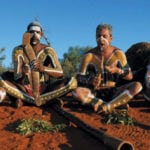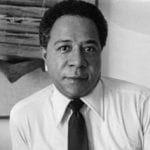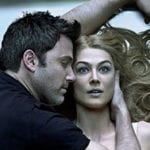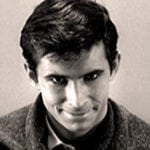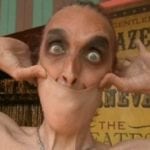 History
History  History
History  Health
Health 10 Everyday Activities That Secretly Alter Consciousness
 History
History Top 10 Historical Disasters Caused by Someone Calling in Sick
 Animals
Animals 10 New Shark Secrets That Recently Dropped
 Movies and TV
Movies and TV 10 Forgotten Realities of Early Live Television Broadcasts
 Technology
Technology 10 Stopgap Technologies That Became Industry Standards
 Weird Stuff
Weird Stuff 10 Wild Facts About Taxidermy That You Probably Didn’t Know
 Travel
Travel 10 Beautiful Travel Destinations (That Will Kill You)
 Miscellaneous
Miscellaneous 10 Modern Marriage Rituals Born from Corporate Branding
 Weird Stuff
Weird Stuff Ten Bizarre Visions of 2026 from Fiction
 History
History 10 “Modern” Problems with Surprising Historical Analogs
 Health
Health 10 Everyday Activities That Secretly Alter Consciousness
 History
History Top 10 Historical Disasters Caused by Someone Calling in Sick
Who's Behind Listverse?

Jamie Frater
Head Editor
Jamie founded Listverse due to an insatiable desire to share fascinating, obscure, and bizarre facts. He has been a guest speaker on numerous national radio and television stations and is a five time published author.
More About Us Animals
Animals 10 New Shark Secrets That Recently Dropped
 Movies and TV
Movies and TV 10 Forgotten Realities of Early Live Television Broadcasts
 Technology
Technology 10 Stopgap Technologies That Became Industry Standards
 Weird Stuff
Weird Stuff 10 Wild Facts About Taxidermy That You Probably Didn’t Know
 Travel
Travel 10 Beautiful Travel Destinations (That Will Kill You)
 Miscellaneous
Miscellaneous 10 Modern Marriage Rituals Born from Corporate Branding
 Weird Stuff
Weird Stuff Ten Bizarre Visions of 2026 from Fiction
10 Wildly Successful Books Authors Wish They Hadn’t Written
It is a writer’s dream to write a best-selling novel, or maybe even a best-selling novel with a blockbuster film adaptation. Who wouldn’t want the fruit of his or her artistic labors to reach and influence the lives of millions? The right book can alter the way its readers think. It can inspire them into action. Sometimes, though, that influence reaches farther and in different directions than the author anticipated. Sometimes, authors grow to hate these publications that make them famous.
10 Brokeback Mountain
Annie Proulx
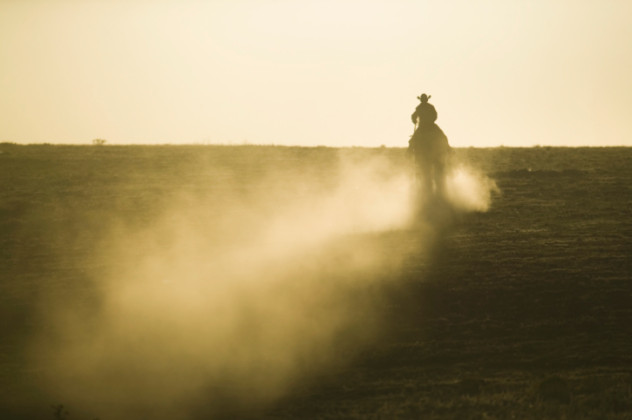
In 1997, Annie Proulx published Brokeback Mountain as a short story. In 2005, it was adapted into the critically acclaimed film that won three Academy Awards and four Golden Globes. The film, which centers around two men who fall in love against a conservative and rural backdrop, has had its fair share of controversy. In the years following the movie’s release, Proulx has given multiple interviews about the hassle she still receives about the content. She says the biggest point of contention is the ending. She receives many letters from men that begin with, “I’m not gay but . . . ” followed by a lengthy explanation of what should have happened and implications that they know better since they are men and the author is a woman. The harassment has bothered Proulx so much that she’s quoted saying, “I wish I’d never written the story. It’s just been the cause of hassle and problems and irritation since the film came out. Before the film it was all right.”
9 Watchmen, V For Vendetta, From Hell
Alan Moore
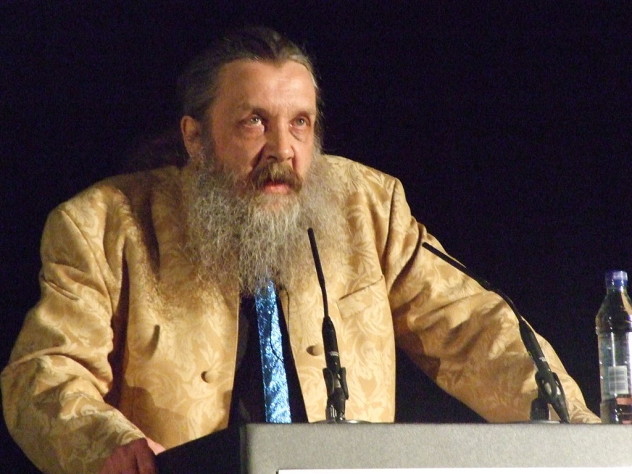
Alan Moore is the mastermind behind multiple graphic novels that have been turned into box office gold—gold that he refuses to take. He worked with DC Comics to publish some of his most famous works, including V for Vendetta, Watchmen, and From Hell. Moore parted ways with DC Comics in the late 1980s for multiple reasons. He disagreed with rating and labeling the books for “Mature Readers.” He was also furious that he was being duped out of the rights to his work; the company said he would get the rights back when the books went out of print. The catch was they never actually planned to stop printing them.
When the DC Comics movies started coming out, Moore refused to be involved and has refused to accept any profit from the films. He won’t watch the film adaptations of his comics and graphic novels, including those published with non-DC companies like The League of Extraordinary Gentlemen. Moore even asked for his name to be taken off the credits. While he stands by his stories in their original form, he despises their connection to Hollywood.
8 My Struggle
Karl Ove Knausgaard

Norwegian writer Karl Ove Knausgaard is the author of an enthralling six-part autobiographical novel entitled My Struggle. Although it was first billed as fictional when it debuted in 2009, it eventually came to light how unapologetically honest and true the story was. In 2012, the book was translated and published in English. The piece has been considered a literary masterpiece.
Knausgaard let readers into every aspect of his life. Writers, editors, and critics have all praised his novel for how he draws readers into his personal world with his uncensored narration. He has even been fingered as a possible recipient of a future Nobel Prize in Literature.
As it turns out, the tale that turned Knausgaard into a literary sensation is a tale he wishes he never told. He wrote about real people in his life and used their real names. Telling their stories has made enemies out of friends and family. To get away from the controversy, he moved his wife and children into a rural village. He doesn’t like to talk about the book anymore because it makes him terribly depressed and causes him extreme anxiety. He can’t stand the thought that he hurt people and has even compared any attempt at an apology to be like a killer apologizing after the fact.
7 Alice In Wonderland
Charles Dodgson
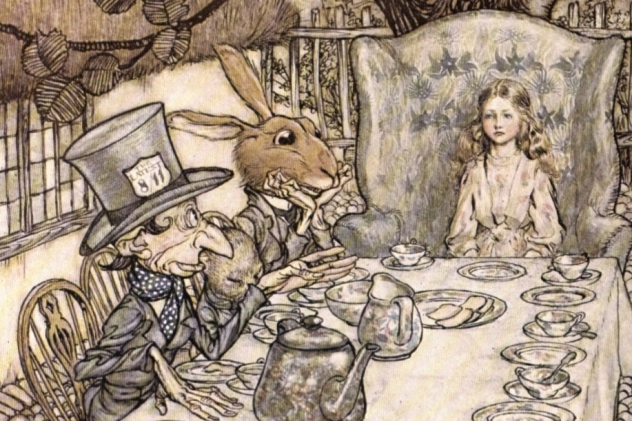
Alice in Wonderland has been a cultural phenomenon. It is one of the quintessential tales that nearly everyone in the Western world recognizes. It has been a hit from the time it was published in 1865 through present day. It’s hard to believe the mastermind who weaved the magical world of Wonderland could ever hate it.
It’s possible that if the book hadn’t been such a success, the author may have never grown to hate it. A recently unveiled letter by Charles Dodgson, the real person who took the pen name Lewis Carroll, reveals that he wishes he had never written the book at all. He despised the publicity. In 1891, he wrote to a friend, Mrs. Symonds. “All that sort of publicity . . . I hate all that so intensely that sometimes I almost wish I had never written any books at all,” he wrote. To try and avoid attention, he would return letters that were “misaddressed” to Lewis Carroll by stating that he “neither claims nor acknowledges any connection with . . . any book that is not published under his own name.”
6 The Anarchist Cookbook
William Powell

The Anarchist Cookbook was written in 1969 by William Powell, who did not want to have to fight in the Vietnam War. The Anarchist Cookbook is a scathing guide to murder, homicide, and homegrown terrorism. Many mass murderers and terrorists have pointed to the book as inspiration. In November 2013, a Colorado high school student named Karl Pierson went on a shooting rampage at school before killing himself. Prior to the horrific event, Pierson read The Anarchist Cookbook.
As for William Powell, he wants the book to be out of print. Unfortunately for him, the publisher who bought the rights in 2002 refuses to take it off the shelf. Powell says that, “the basic premise behind the Cookbook is profoundly flawed . . . [it’s an] illogical notion that violence can be used to prevent violence.” In 2011, Powell co-wrote a book entitled Becoming an Emotionally Intelligent Teacher that he calls “an implicit refutation of the emotional immaturity of the Cookbook.” He writes about all of this in an article for The Guardian explaining that he doesn’t fully understand the exact influence his book had on all the people who read it and then committed atrocious acts, but he “cannot imagine that it was positive . . . the continued publication of the Cookbook serves no purpose other than a commercial one for the publisher. It should quickly and quietly go out of print.”
5 Rage
Stephen King
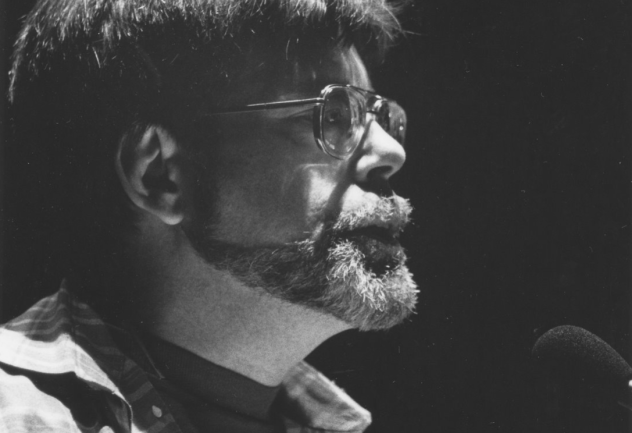
Stephen King is one of the most prolific and successful authors in the world. His books have sold over 350 million copies. King fans know that Richard Bachman novels are just King novels under a pseudonym. Rage, published in 1977, was the first Bachman book to hit the shelves.
King wrote the book when he was a high school student. The main character in the novel shoots up his school, holds a classroom hostage, kills another student and two teachers, and then tries to commit suicide by police fire. In the following two decades, the book was tied to four school shootings. The students who carried out horrific crimes in school all had read or been inspired by the novel.
In response, King demanded the book be taken out of print. Unlike William Powell, King had the power to take Rage out of publication. Because the book is out of print, used versions of Rage can cost anywhere from $700 to $2,000 online. King stands by his decision to remove the book from publication. He doesn’t want his writing to be a catalyst that pushes psychologically unstable kids over the edge.
4 Jaws
Peter Benchley
Peter Benchley was the mastermind behind the popular 1974 novel Jaws, which was later turned into a Steven Spielberg blockbuster in 1975. Benchley loved the film but was upset by the number of people who were terrified of the water afterward. He also hated the uptick in hate toward sharks.
Due to the intensive research he did to write the book, Benchley became somewhat of a shark expert and oceanography. Later in life, he became an avid shark conservationist and regretted portraying them as vicious, grudge-holding killers. Jaws was his first book, but not his last. Many of his future books also focused on various terrors under the sea. The last book he wrote was in 2005 and was called Shark Life. The book was nonfiction and meant to shed light on dangers in the sea and encourage conservation. He passed away the following year.
3 The Aeneid
Virgil
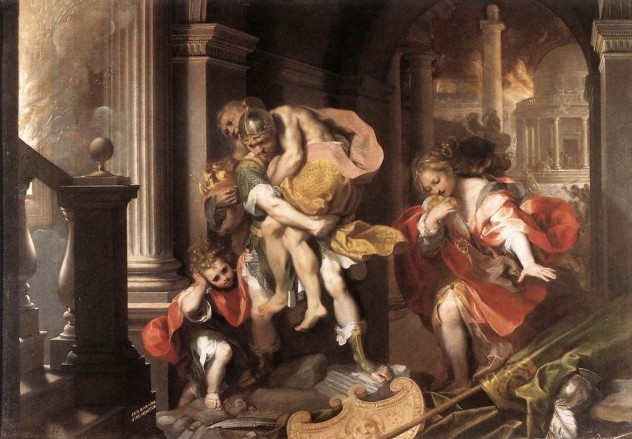
Virgil, who lived from 70 to 19 B.C., is most well-known for writing the epic poem the Aeneid. The Aeneid has been a hugely influential piece. Today, it is taught in schools as an essential part of any Latin-related course. It is also an important pillar to the Western canon.
Virgil was an educated man, financially supported as an artist by the future Roman Emperor Octavian, aka Augustus. He began writing the Aeneid in 30 B.C. When he became ill and died in 19 B.C., he felt that the epic poem was still unfinished. While on his deathbed, he asked for the manuscript to be burned.
Scholars argue over the accuracy of the account. If it really happened, Augustus did not respect those wishes and had two of Virgil’s friends finish the poem. Why Virgil would have wanted his masterpiece destroyed is unknown, but perhaps he was unhappy with its unfinished form. He might have felt intimately connected with the imperfect protagonist of the poem and therefore felt the poem was imperfect, or maybe he felt the Aeneid was rife with propaganda that he regretted promoting. Whatever the reason—if the legend is true—Virgil died not wanting to share with the world the poem that has made him immortal.
2 All Of Literature And Cinema
Elmore Leonard
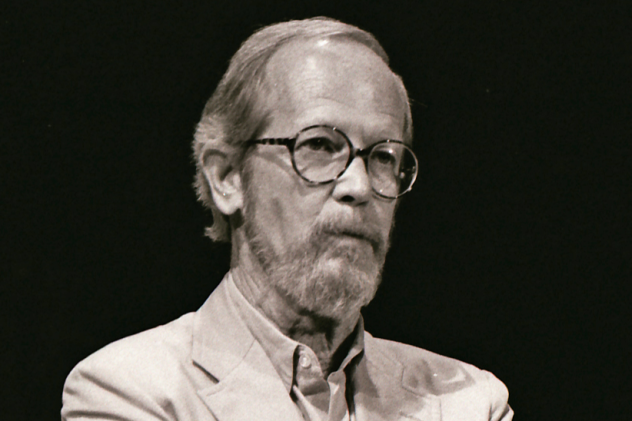
Elmore Leonard was an incredibly successful American author who won distinguished accolades such as the National Book Award and the Peabody Award. He died at the age of 87 in August, 2013. By the time of his passing, he had written a total of 45 novels. An incredible number of them were turned into Hollywood blockbusters and popular television shows, including Get Shorty, 3:10 to Yuma, and Justified.
Leonard had a love/hate relationship with Hollywood. He was not shy about admitting that his motivation to work with producers and turn his works into adaptations was the money. He let the movies and television shows be made, even when he absolutely hated the end results. He said that the 2004 adaptation of his novel The Big Bounce was the worst movie ever, and he considered the 1969 adaptation to be the second worst. He even wrote a number of screenplays, about a half dozen of which were made into films. He hated the entire process and the final results.
Leonard’s process went beyond film. He hated literature, too. He hated everything about the literary world and purposely crafted his novels to be the opposite of what he thought the literary world would want. He made up his own writing rules. He loved to write, but he despised the world around it.
1 Winnie The Pooh
A.A. Milne
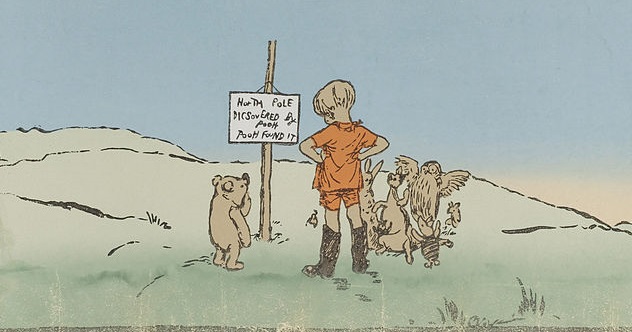
Winnie the Pooh is arguably one of the most beloved characters in children’s literature. The book’s author, A.A. Milne, initially wrote Winnie the Pooh as an homage to his son and his stuffed animals. He even named the boy in the book after his son, Christopher Robin.
The real Christopher Robin grew to hate his association with Winnie the Pooh, feeling consistently overshadowed by his father’s legacy. As a child he was constantly mocked because of the books. Even the drawn Christopher had a stark resemblance to the real-life Christopher. These were drawn by E.H. Shepard, who later regretted agreeing to illustrate Winnie the Pooh. He hated how much it overshadowed what he considered his true work as a political cartoonist. A.A. Milne himself ended up regretting writing the books, too, because he also felt they overshadowed his other work.
Kristance is a freelance writer and travel addict currently living in Argentina. She’s always “that person” who will bore everyone by blurting out facts awkwardly at inappropriate moments. She sometimes writes about her travel adventures on diggingtoroam.com and constantly adds ridiculous posts to her tumblr. The most exciting thing that happened to her in 2014 was when Jewel retweeted her; if you want to hop on that twitter bandwagon check out Kristance’s account @diggingtoroam.

